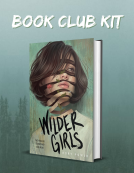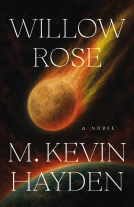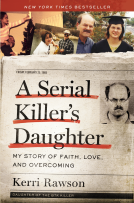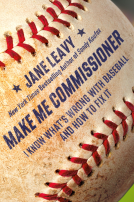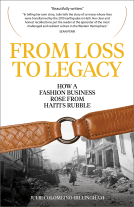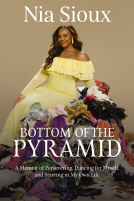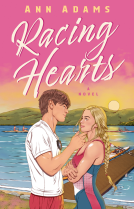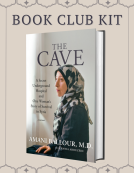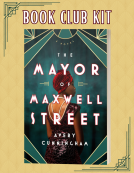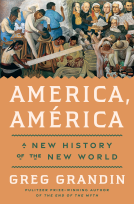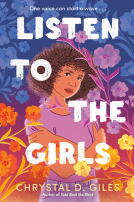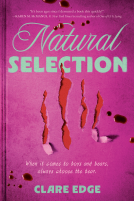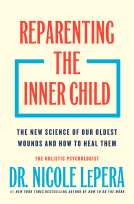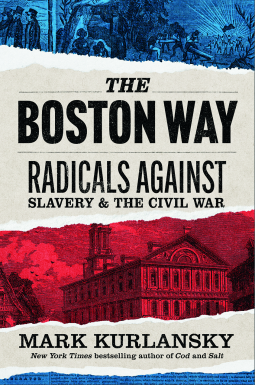
The Boston Way
Radicals Against Slavery and the Civil War
by Mark Kurlansky
This title was previously available on NetGalley and is now archived.
Send NetGalley books directly to your Kindle or Kindle app
1
To read on a Kindle or Kindle app, please add kindle@netgalley.com as an approved email address to receive files in your Amazon account. Click here for step-by-step instructions.
2
Also find your Kindle email address within your Amazon account, and enter it here.
Pub Date Oct 07 2025 | Archive Date Oct 07 2025
Talking about this book? Use #TheBostonWay #NetGalley. More hashtag tips!
Description
An untold story of the Civil War Era: pacifists in Boston who led the fight to end slavery without war.
Has there ever been good violence or a good war? The American Civil War is likely considered to be so since there seemed to be no alternative. Or was there? Before the war, Bostonian abolitionist William Lloyd Garrison correctly predicted that fighting would not bring about real freedom and justice. If emancipation came about through violence, he believed, it would take at least a century for Black people to get their rights. As we now know, it has taken even longer than that.
Here is the story of Garrison and other abolitionists, Black and white, male and female, who advocated a peaceful end to slavery and the start of human rights for Black people. The Boston Clique, as they were called, were victorious in persuading their fellow Bostonians to end Jim Crow laws on Massachusetts’ railroads. Persuasion was, these pacificists believed, the only means to lasting change.
In these pages, we find Frederick Douglass and lesser-known Black abolitionists, William Nell and Charles Remond. We meet leading feminists of the nineteenth century Lydia Maria Child, Margaret Fuller, Susan B. Anthony, and Elizabeth Cady Stanton. Additional key figures include Adin Balou, William Ladd, and Noah Worcester whose voices for nonviolence impacted Leo Tolstoy, Gandhi, and Dr. Martin Luther King.
Still, if it meant a faster end to the horrors of slavery, wasn’t violence the answer? In time, pacificist abolitionists such as Douglass and John Brown came to believe the entire system in the South needed to be overthrown and that could only happen through the shedding of blood. Time may now provide a different perspective.
While history has little memory of abolitionists, and even less for pacifists, nothing can be learned from that which is not remembered. What if the Civil War had never have been fought? Might we now live in a world of far greater justice and peace? What does this mean today as we still pursue “righteous” violence? This is the story of a road not taken.
A Note From the Publisher
Controversial view regarding the Civil War and slavery. Expect major media attention
Author Kurlansky is on the side of the pacifists. Kurlansky himself was a conscientious objector during the Vietnam war. He, and this book, will make for provocative media interviews. The topic of violence and nonviolence is perennial.
Key market in Boston and New England
Nationally, there remains a large audience for Civil War Era books and this book sheds new light on voices of that era.
Marketing Plan
Lead title for Fall 2025
Strong Indie Next contender
Author will tour around pub date, starting on the East Coast.
Expect strong media interest
ARCs available now.
Speaking events. Our preference is for venues that can accommodate an author talk followed by a signing. To request, contact David Allender at da@godine.com
Available Editions
| EDITION | Hardcover |
| ISBN | 9781567927658 |
| PRICE | $28.95 (USD) |
| PAGES | 240 |
Available on NetGalley
Average rating from 5 members
Featured Reviews
 Reviewer 1774519
Reviewer 1774519
Thank you to Netgalley and the author for providing a free eARC in exchange for an honest review.
Honestly, I really loved this book. It wasn't until I picked it up that I realized I had another book by this author on my TBR for AGES (Salt) and now I'm going to pick it up asap.
This was a history of abolition in Boston, but more accurately, I'd say it's a history of revolution in Boston leading up to the civil war. Kurlansky dedicates large portions of chapters to women's rights and other forms of disobedience, which provides a richer look into the culture of Boston, but I did forget I was reading about abolition at times. However Kurlansky's writing is engaging and paints a really vivid portrait of each of the people he talks about. He highlights all the differences of opinion even within the same movements and I learned a ton.
If I could make one complaint, it would be that I almost felt suffocated by the limitation to Boston at times. It was definitely a very interesting focal point to choose as I feel like a lot of anti-slavery narratives look to the South, and Kurlansky did look outside of Boston a bit to fill in some details, but for the most part we were stuck in Boston as if this was the only place in the world where these debates and conversations were happening. Even if we didn't focus on other countries, other northern cities, or the South in any large capacity, it would've been nice to check in a bit more to see how this Bostonian subculture was interacting with the larger world.
To clarify, I am not a historian, but nothing seemed incorrect or misleading from my limited knowledge, and this book seemed well researched. My rating mostly takes into account my own personal enjoyment as well as how much I felt I learned reading this (which was a lot)
Readers who liked this book also liked:
Kerri Rawson
Biographies & Memoirs, Parenting, Families, Relationships, True Crime
Julie Colombino-Billingham
Biographies & Memoirs, Business, Leadership, Finance, Nonfiction (Adult)
We Are Bookish
Biographies & Memoirs, Health, Mind & Body, Nonfiction (Adult)
We Are Bookish
Historical Fiction, Literary Fiction, Multicultural Interest
